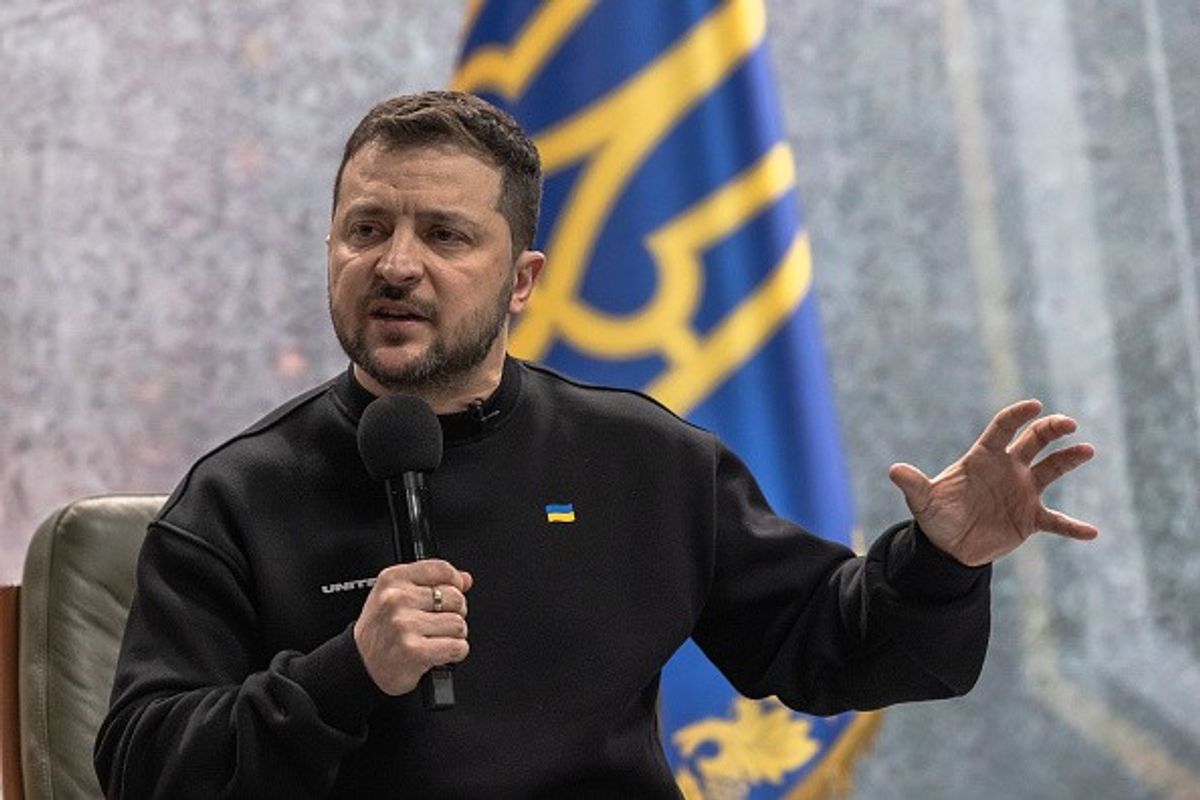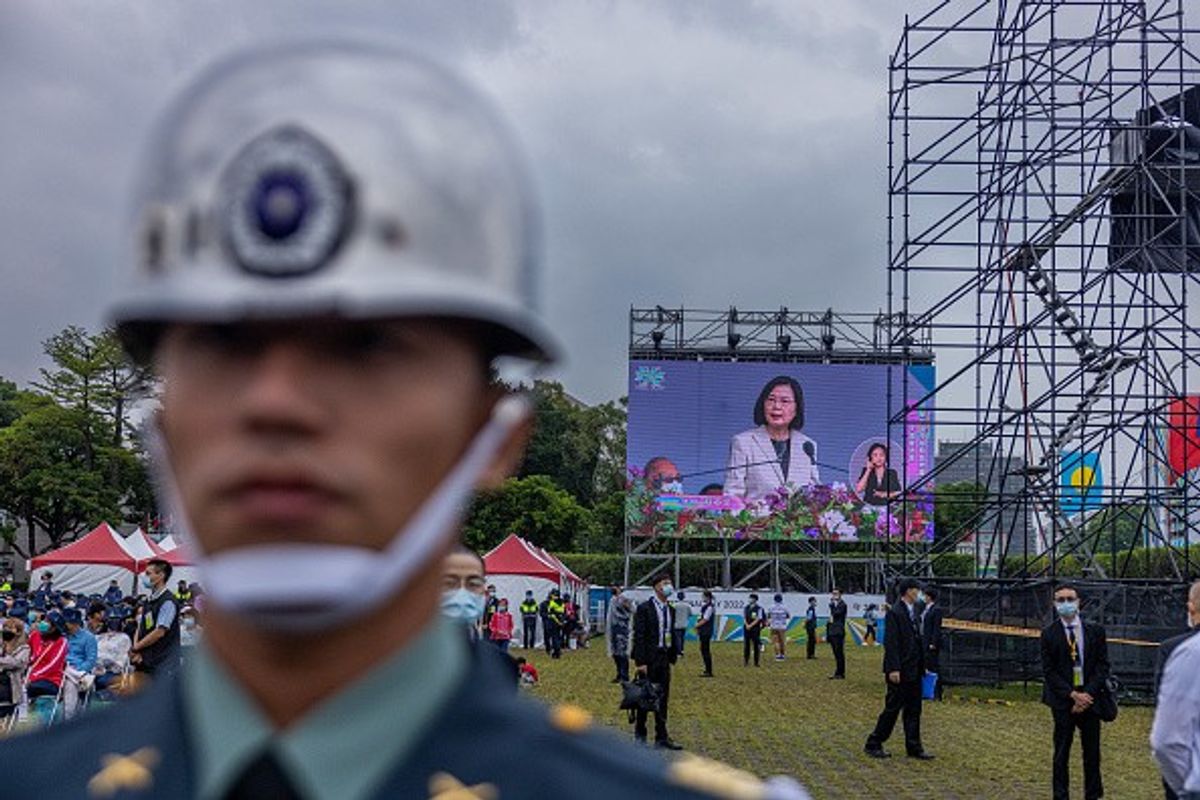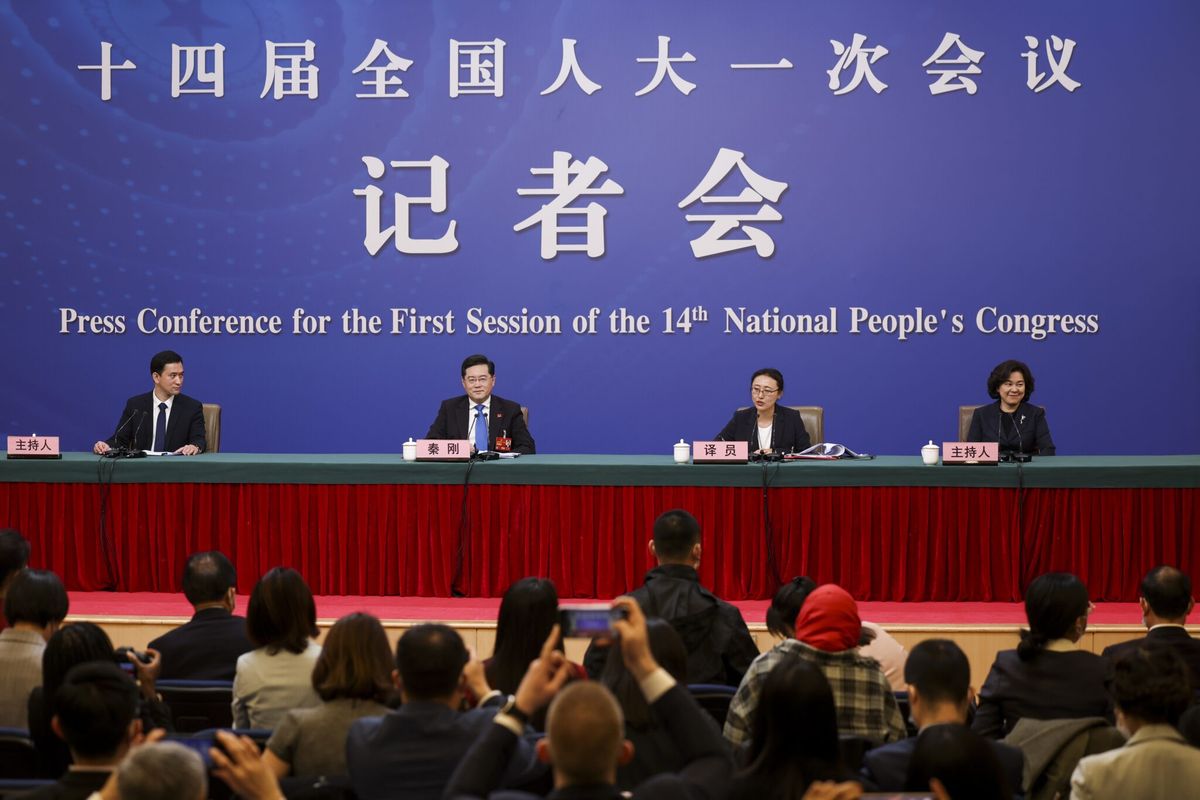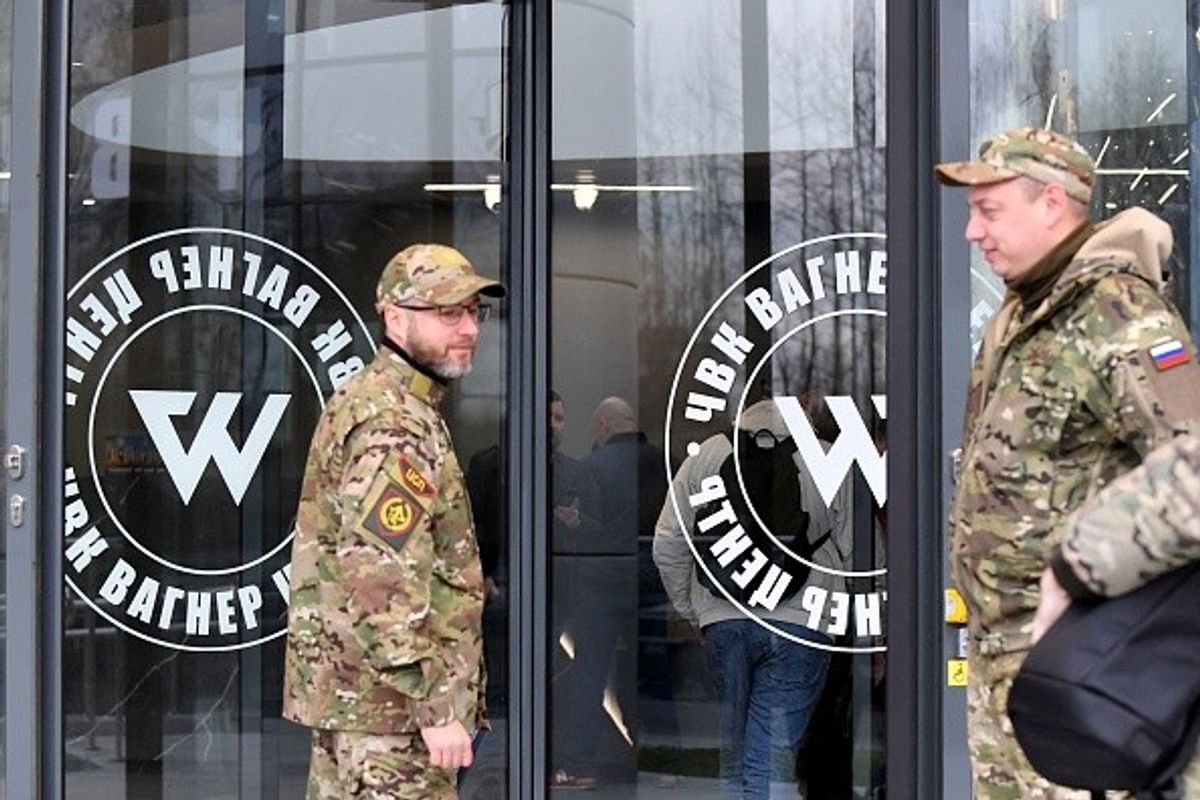The privately-owned military company Wagner Group under Yevgeny Prigozhin’s leadership, has served important Russian military and influence goals in Ukraine and elsewhere. The group's march to infamy has been well documented in Russia's war in Ukraine but recent events suggest the private military company (PMC) is facing increasing Kremlin-imposed limitations on its autonomy. And there are indications that the Russian Ministry of Defense may be developing alternative, and more easily controlled, private security forces.
These are among the key conclusions drawn by ISW Russia analyst Kateryna Stepanenko in a recent interview with The Cipher Brief on the significance of the Wagner Group for Russia’s ongoing campaign in Ukraine, and beyond. The interview has been lightly edited for length and clarity.
EXPERT Q&A
The Cipher Brief: What is your assessment of the Wagner Group’s military presence and effectiveness in Ukraine and is thier role in Ukraine similar to its deployments in places like Syria and Africa as a Russian proxy force?
Stepanenko: Russian, Western, and Ukrainian officials have reported that the Wagner Group had a nominal force of 50,000 mercenaries with approximately 40,000 recruited convicts and 10,000 contractors operating predominantly in the Bakhmut area. This nominal force estimate is likely lower because Wagner has suffered at least 30,000 casualties. There are also sightings of Wagner forces arriving in Melitopol and Zaporizhia Oblast but it is unclear if these forces will support the Donetsk or Zaporizhia operational directions at this time.
Wagner is not an effective force as it relies on brute force to achieve tactical advances. Wagner forces have been operating and suffering significant losses in the Bakhmut area since July 2022, and were not able to make notable breakthroughs until Russian conventional and elite forces reinforced the direction in January 2023. Wagner's convict force lacked cohesion, discipline, and the morale necessary for decisive victories on the frontlines. Wagner financier and owner Yevgeny Prigozhin and Wagner commanders often punish deserters in inhumane ways and throw convict forces into combat operations without sufficient preparation or supplies.
Wagner’s participation in Ukraine differs from its other deployments because of Wagner’s use of convicts on the frontlines. Wagner predominantly deployed special forces to missions in Syria, whereas in Ukraine, Wagner committed both elite units and other non-professional forces.
The Cipher Brief: There has been public, ongoing tension between Wagner Group leaders, especially Yevgeny Prigozhin, and some mainline Russian military officials. How would you characterize this relationship?
Stepanenko: The Kremlin likely used the Wagner Group and other irregular forces to replace exhausted Russian conventional forces following their culmination after the bloody capture of Severodonetsk and Lysychansk. Russian forces paid dearly to seize the two remaining large cities in Luhansk Oblast and faced a significant troop shortage that prompted Russian President Vladimir Putin to launch volunteer recruitment campaigns throughout the country. Putin likely allowed Prigozhin to expand his forces with prisoner recruits in an effort to mitigate these personnel shortages and maintain momentum on some select frontlines by unconventional means.
Prigozhin likely imagined his efforts in Ukraine would continue to lend him military and political power in Russia. But Prigozhin began to exploit the Russian information space - and his prominence - to attack the Russian Ministry of Defense and Russian military command in hopes of pursuing his commercial and political objectives such as the legalization of Wagner in Russia.
The Kremlin, however, has been increasingly marginalizing Prigozhin by refusing to recognize Wagner as an official legal entity and increasingly siding with the Russian Ministry of Defense on force professionalization efforts. Prigozhin likely overestimated his favor with Putin and the combat effectiveness of his forces in hopes that achievements in Ukraine would secure him a spot near Putin. Prigozhin also likes to flaunt his connections to other nationalist-leaning Russian State Duma officials, but these officials are unlikely to risk their patronage links with Putin.
Cipher Brief Subscriber+Members enjoy unlimited access to Cipher Brief content, including analysis with experts, private virtual briefings with experts, the M-F Open Source Report and the weekly Dead Drop - an insider look at the latest gossip in the national security space. It pays to be a Subscriber+Member. Upgrade your access today.
The Cipher Brief: How does the Wagner Group finance its operations, and what are its primary sources of military gear and weapons systems?
Stepanenko: Prigozhin repeatedly claims that he funds the private military company out of his own pocket, but the information on Wagner financing is not readily available in open source for ISW to confirm this claim.
The Wagner Group is likely relying on the Russian Ministry of Defense’s logistical support and maintenance functions for its aviation and heavy military equipment. Wagner-affiliated milbloggers (military bloggers) previously claimed that Wagner forces used military district-level assets, various self-propelled guns and mortar systems, and Su-25 aircraft, which suggest that Wagner is likely working with the Ministry of Defense to access and operate these systems. Wagner also likely relied on the Ministry of Defense to allow Wagner to use Russian military training grounds and to recruit prisoners.
Prigozhin recently confirmed Wagner’s reliance on Russian Ministry of Defense’s ammunition stockpiles. He complained in a half-yelling audio recording that those Russian military officials cut him off from weaponry provisions due to his disobedience and behavior. He also noted that Wagner has been receiving weapons from members of the Russian military, which would be in violation of Russian military doctrine once he was formally cut off from weapons supplies. He said that he cannot fix the issue of ammunition shortages through any of his friends and connections. The Kremlin was likely targeting sources of Prigozhin’s ability to leverage power, namely by cutting off access to recruiting prisoners and obtaining state-owned weapons, thus undermining his appeal in the Russian information space and his patronage systems.
The Cipher Brief: In the long term, how central is the use of proxy forces to Russia’s global military and political strategies and how is Russia managing relationships between its conventional military structures and PMC’s?
Stepanenko: The Wagner Group is just one of the tools that Russia uses to deepen its influence abroad, but it is not the principal tool. Russian state institutions such as the Russian Ministry of Defense, Russian Foreign Ministry, Rosatom, and Rostec among the others that cannot be discounted, as they also pioneer Russia’s global military and political objectives at a larger scale than private military companies. (See ISW’s 2019 reports on the Russia-Africa Summit.)
The Kremlin and the Russian Ministry of Defense are reportedly forming new private security forces in an effort to normalize state-affiliated paramilitary groups, likely in an effort to displace private military companies like Wagner. Ukrainian intelligence reported that a subsidiary to the Russian state energy company Gazprom is forming a private security company under the law on safety of energy assets, which effectively allows the Kremlin to establish a legal parallel military institution. The Kremlin likely learned its lesson from relying on Prigozhin’s forces and may be attempting to eliminate future intermediary actors when forming parallel militaries.
Read more expert-driven national security insight, perspective and analysis in The Cipher Brief















